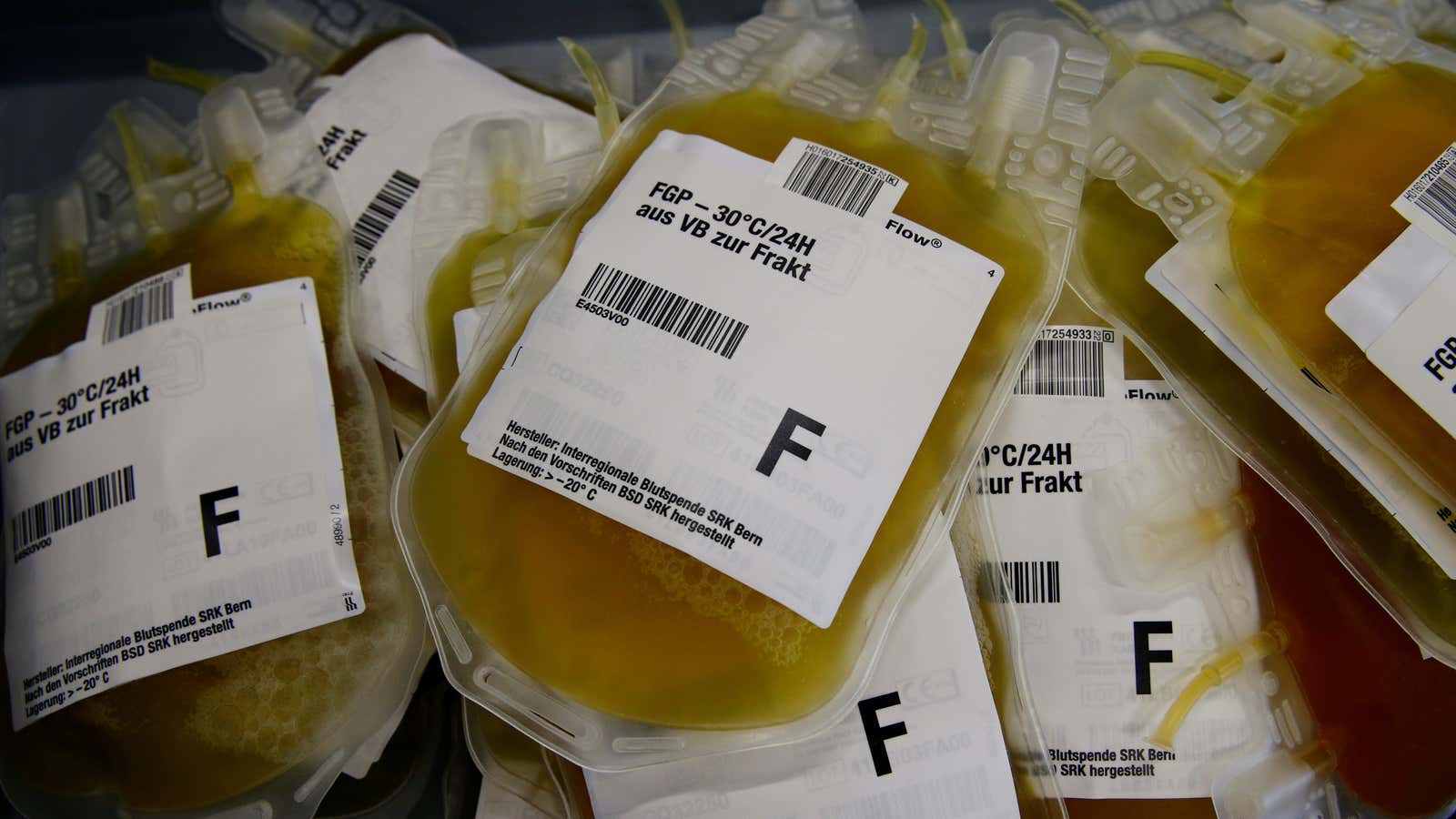This weekend, a hospital in Houston became the first in the United States to treat a seriously ill Covid-19 patient with blood plasma collected from a recovered patient. Plasma therapy, which delivers antibody-packed plasma from recovered patients to those still fighting off infection (or preemptively to those at high risk of infection), is not a new or particularly complex procedure. But it could be a critical weapon in the fight against SARS-CoV-2—and it’s already coming online.
Ever since a Wall Street Journal published an op-ed in late February by Johns Hopkins immunologist Arturo Casadevall, a growing coalition of researchers at more than 40 US institutions have pitched in to the National Covid-19 Convalescent Plasma Project. The project is developing protocols American hospitals can follow to identify plasma donors and administer treatments.
The Houston case was the first product of that effort, followed soon after by Mount Sinai Hospital in New York, which is now administering the first of its own plasma treatments. Blood plasma is the liquid part of blood that carries blood cells, clotting agents, oxygen, and other key components—including antibodies. After a person is infected with a pathogen, plasma cells produce antibodies to fight it off, which can linger in blood long after the infection dies down.
Michael Joyner, a physiologist at the Mayo Clinic who is helping organize the project, said it’s too soon to know how effective this first round of treatments, which were administered to severely ill patients in the ICU, have been. Data about how many patients were treated and their outcomes should be available later this week.
“These patients are pretty sick, so it will take a few days to know,” he said. “For people in the ICU, you wouldn’t expect a Lazarus-like effect.”
Researchers are still working to understand what the ideal concentration of antibodies for treatment is, how long it takes patients to develop a response, and how long it lasts. Hospital trials, which are planned to start soon at the Mayo Clinic, Johns Hopkins, and the Montefiore Medical Center, will also shed light on when plasma treatments are most effective: As a prophylaxis before infection, in the early stages of illness to prevent it from escalating, or as a last-ditch attempt to save the gravely ill.
Plasma therapy is also gaining traction worldwide. Officials in the UK are evaluating a plan for trials there, and last week researchers in China published the results of a small trial in which five critically ill patients improved enough to be removed from ventilators after receiving plasma transfusions (three have been discharged, and two remain in stable condition in the hospital).
Last week, the FDA cleared the way for plasma treatment to be used experimentally on critically ill patients in US clinics that receive an emergency authorization; Joyner said the agency has granted about 15 so far and he expects many more will be forthcoming.
Scaling up the availability of plasma treatment in the US will also require coordinating logistics between blood banks, Joyner said. After that, more hospitals should be able to identify existing patients who could be candidates for plasma donation, and eventually distribute donations from the general public nationwide via blood bank networks. It may also be possible to use plasma donations to develop a concentrated antibody pharmaceutical product, Joyner said.
“It will be a trickle this week, and the tempo should increase over the next few weeks,” he said.
Unfortunately, the nationwide deficit of coronavirus testing will also constrain the potential pool of plasma donors. In order to make a donation, a person must have previously received a positive swab test for SARS-CoV-2, be completely clear of symptoms for at least several days, and receive a negative result on a second swab test. Donated blood will be also tested to confirm that it contains a high enough concentration of antibodies to be effective.
If you live in the New York City area and think you might be able to donate, Mount Sinai is registering volunteers here, and Columbia University is registering them here. For the rest of the country, you can sign up through the Plasma Project website to be kept posted as more volunteer opportunities become available.
